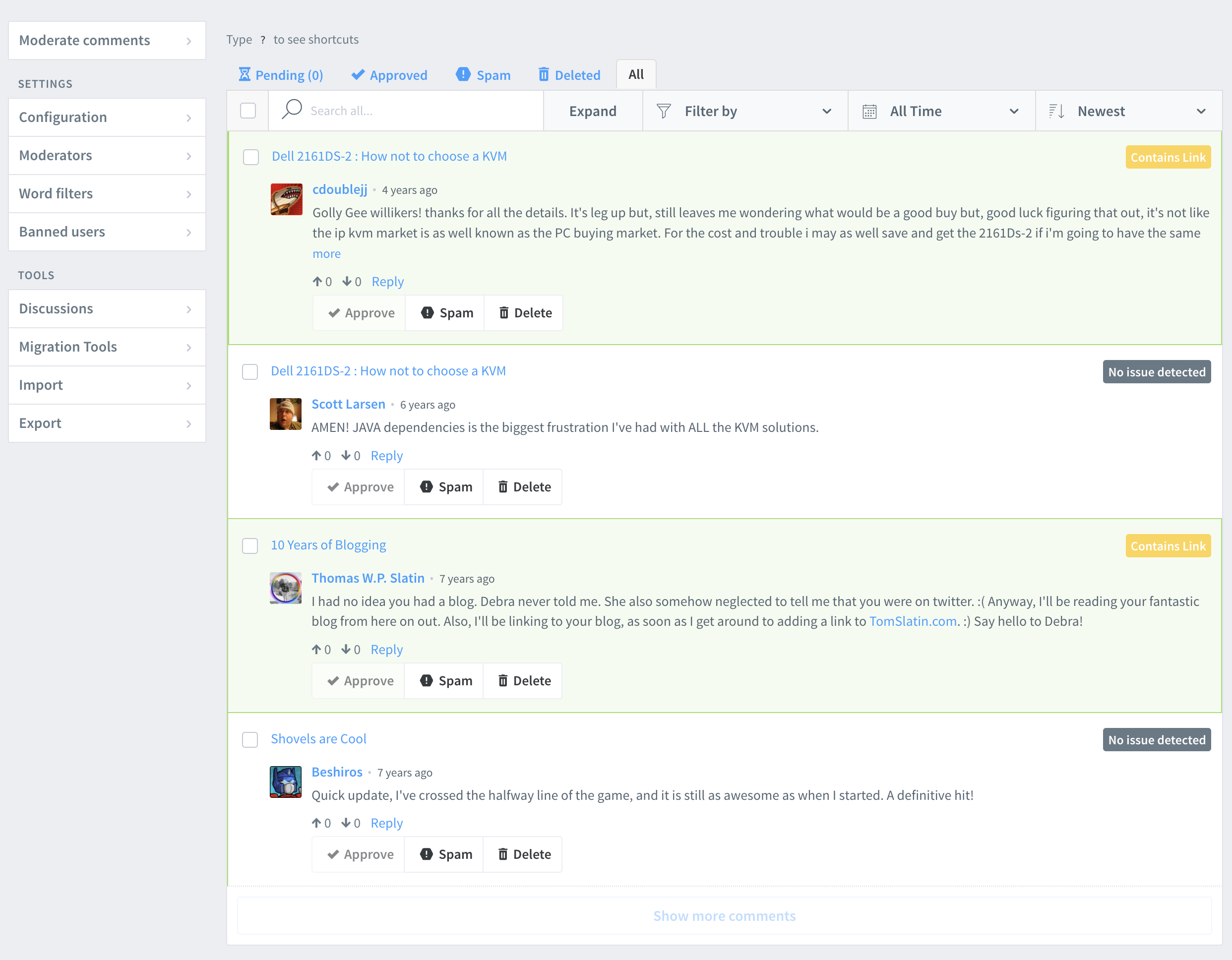This post needs a Comment
In the last 8 years, Ghost has matured with a robust newsletter tool and a subscription system. However, it has always had one glaring omission, it does not have a #comment system. This is our solution.

Technodabbler has always been an exploration in new technology, often including the software and the infrastructure powering this blog. Created in 2011 as a Kickstarter, Ghost is an emerging platform that enable content creators to publish their ideas. In the last eight years, Ghost has matured with a robust newsletter tool and a powerful subscription system. However, it has always had one glaring omission, it does not have a comment system. This means creators can push content to their audience, but cannot discuss with them.
The omission is intentional. Searching the forums provides insight into this decision :
It’s great that you’ve built up a strong community that are keen to chat about your writing work. However not everyone needs a commenting system built into their blog and we do our best to keep Ghost as lean as possible, which is why we recommend using other platforms to add commenting to blogs. There’s plenty of options to choose from. [ref]
Commenting systems are not easy to do right. They’re also a classic iceberg problem, where it seems like a small thing but a mountain lies beneath. Because of spam and bad actors, you automatically need filtering and moderation tools. And these in of themselves are projects of their own. [ref]
Although the reasoning is sound, those wanting comments in Ghost are left to figure it out themselves.
Lets Disqus
In the early days of the platform, the most common solution to integrate comments into Ghost was Disqus. Founded in 2007, it quickly became one of the most important discussion platform. Technodabbler leveraged this solution for numerous years, up until 2017.

However, in recent years, Disqus has been criticized for slow load times and imposing advertising. During a theme updated, comments were disabled until a better solution could be found.
What would a native comment system be?
As already mentioned, Ghost blog already features a powerful membership solution. Although this system is mostly for newsletter registrations and offering bonus content to paying members, it can also be used as an authentication system for a comment system. This removes the friction of having to sign up to leave a comment, as long as the commenter is a member (which is a source of friction in itself). Comment systems leveraging the built-in authentification are considered to have native integration.
Although, a couple of comment system will natively integrate into Ghost, the most mature solution is Cove.Chat. For a monthly or yearly fee, this comment platform will allow yours readers to post on your blog, as long they have signed up. This leaves no room for integrations with social platform which would allow readers to authentify without addition signups.
By their nature, comment platform host private information, such as the name , the email and the IP of commenters. By using Cove.Chat, this information would be stored on their infrastructure, which in turn requires additional consent from commenters, thus introducing additional friction.
In the end, lack of social network integration and legal consent create to much friction for Cove.Chat to be good solution.
Reducing Friction
The ideal comment system allows readers to share without friction: many visitors will not leave a comment if blocked by a signup form. Social networks are an interesting solutions as readers are often already logged into their preferred platform. This allows readers to forgo signup by letting the social network vouch for them. As such, support for authentification via social network is a must.
Self-hosting the comment system also removes legal complexity, as private data would not need to be shared with a third-party. This removes the need for additional consent, which is legally required to share this type of data.
Commento has Entered the Room
Commento.io is a relatively young privacy focused comment system. Its goal is to fosters discussions with simple clean aesthetics. It features integration with several social networks, and can be self-hosted. In addition, integration with Ghost is pretty simple. This made it the perfect solution to try.
The problem remains that a comment system will store personal private information, which can be legally challenging. The easiest solution is to update the Terms of Services and Privacy Policy to reflect the newly stored data. This is the perfect task for a service like GetTerms.io , which was previously used in the newsletter project. They provide an inexpensive solution to generate a simple Terms of Services and Privacy Policy by simply filling out a form.
All that is left is to try out the comment system. Feel free to try it out and leave a comment bellow.




